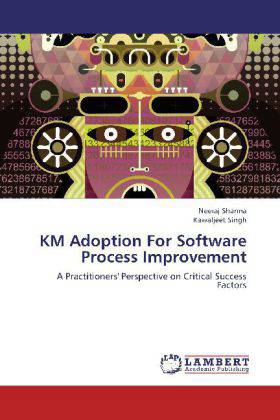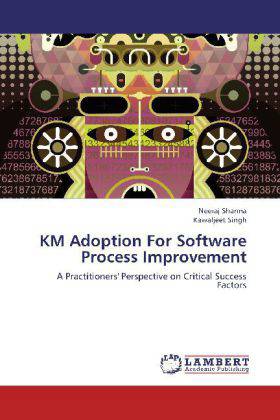
- Afhalen na 1 uur in een winkel met voorraad
- Gratis thuislevering in België vanaf € 30
- Ruim aanbod met 7 miljoen producten
- Afhalen na 1 uur in een winkel met voorraad
- Gratis thuislevering in België vanaf € 30
- Ruim aanbod met 7 miljoen producten
Zoeken
KM Adoption For Software Process Improvement
A Practitioners' Perspective on Critical Success Factors
Neeraj Sharma, Kawaljeet Singh
Paperback | Engels
€ 67,45
+ 134 punten
Omschrijving
The success or failure of the knowledge management (KM) systems and KM practices claimed to be adopted by software engineering (SE) organizations can be best judged from software engineers' perspective as they are the ones who are the first-hand users of the KM systems and technologies. The software engineers are the face of the SE organizations and reflect the true picture of the state of affairs in the area of KM in software industry. These are the people who are actually engaged in the sharing and managing of their knowledge through KM systems on a day-to-day basis. Therefore, their perspective is very important for understanding the actual extent of KM in software industry. This book justifies the need of the research and analyzes the software engineers' perception regarding KM systems in Indian software engineering environment. The study also aims to identify and analyze the various factors that cause hindrances in adopting KM practices and to identify the relevant success factors required for the implementation of KM systems in software engineering organizations in India. The book is intended for software firms planning to adopt KM systems for software process improvement.
Specificaties
Betrokkenen
- Auteur(s):
- Uitgeverij:
Inhoud
- Aantal bladzijden:
- 168
- Taal:
- Engels
Eigenschappen
- Productcode (EAN):
- 9783659256073
- Uitvoering:
- Paperback
- Afmetingen:
- 150 mm x 220 mm

Alleen bij Standaard Boekhandel
+ 134 punten op je klantenkaart van Standaard Boekhandel
Beoordelingen
We publiceren alleen reviews die voldoen aan de voorwaarden voor reviews. Bekijk onze voorwaarden voor reviews.











